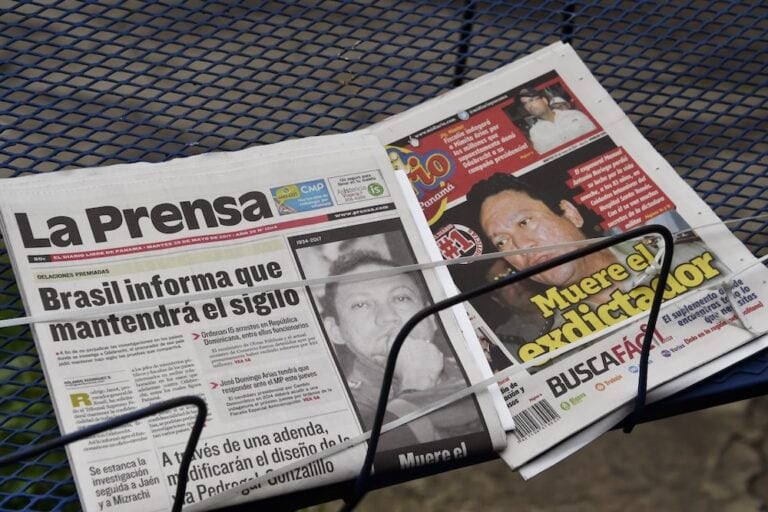(IAPA/IFEX) – The following is a 5 February 2002 IAPA press release: IAPA welcomes opening of access to public records in Panama MIAMI, Florida (February 5, 2002) – The Inter American Press Association (IAPA) today welcomed the recent enactment in Panama of a law providing free access to public records, a move that strengthens people’s […]
(IAPA/IFEX) – The following is a 5 February 2002 IAPA press release:
IAPA welcomes opening of access to public records in Panama
MIAMI, Florida (February 5, 2002) – The Inter American Press Association (IAPA) today welcomed the recent enactment in Panama of a law providing free access to public records, a move that strengthens people’s right to information and press freedom in Panama.
The new law, enacted on January 22, stipulates, among other things, that “every individual or juridical person has the right to request information from government bodies” and the official concerned has 30 days to provide such information; the official’s failure to comply will result in a fine or dismissal. The law sets out nine cases of “restricted access”, among them those having to do with information on national security and cases under investigation by the Public Prosecutor’s Office.
IAPA President Robert J. Cox, assistant editor of The Post and Courier, Charleston, South Carolina, recalled that Costa Rica, Colombia, Ecuador and Peru have legislation enabling partial access to public records, but said that “the Panamanian law is the one that provides for greatest access, because it contains the concept of habeas data, states that officials that deny access to the information shall be penalized and empowers the courts to step in when there is such refusal.”
However, Cox expressed caution, warning of the danger that the restrictions on access to information could become “the rule rather than the exception.” He added that, in matters of press freedom, “it is always best to have no laws and regulations” as “when there are press laws, they are always manipulated to curtail press freedom.”
Cox said that people in general benefit from access laws and such laws particularly make the work of journalists easier on behalf of the public’s right to be informed. “We shall be watching closely what happens in practice in the Panamanians’ use of this right and the kind of response they obtain from their government officials,” he declared.
Coincidentally, during a Press Freedom Forum that the IAPA held last week in Bolivia, Bolivian President Jorge Quiroga said that the reform of his country’s constitution would include provisions on access to information.
The IAPA has conducted 18 similar national forums throughout Latin America and the Caribbean, insisting that governments offer their citizens means of access to public records. The next such forum is scheduled for February 20-22 in Caracas, Venezuela.


